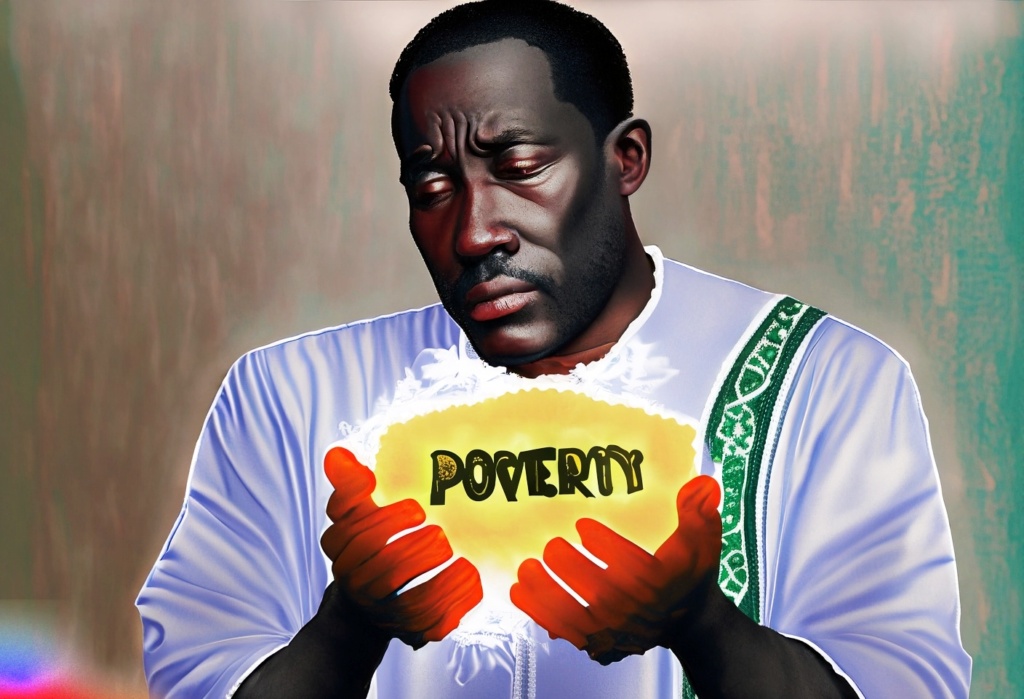
By Dapo Oshiyemi FCMI – The government of Bola Ahmed Tinubu has not only hit the ground running but sprinted like Usain Bolt, marking a welcome departure from the previous administration’s ponderous inertia. The timely removal of the costly, corrupt and wasteful petrol subsidy program, alongside efforts to harmonize foreign exchange windows, are crucial steps towards propelling Nigeria onto the path of economic growth. However, we must also acknowledge that these policies, while necessary, will in the short term burden the Nigerian people with more hardship and misery. Consequently, there has been ongoing discourse in political and economic circles regarding the implementation of a short-term social intervention program, popularly known as Palliatives, to cushion the impact on the populace.
According to the World Bank, the removal of fuel subsidies will drive an additional 7.1 million Nigerians into poverty. Furthermore, inflationary pressures will cause an additional 4 million Nigerians to join their ranks, as the prices of basic commodities continue to rise. Considering the Country already has 133 million Nigerians classified as three-dimensional poor, that will bring the overall number to a staggering 144m Nigerians (67%) of the population who are in abject poverty, to say this is a monumental crisis for this new Government is an understatement.
Shubham Chaudhuri, World Bank Country Director for Nigeria, has stressed the urgent need to seize this opportunity and implement a robust, large-scale cash transfer program. This program should provide quick relief to the poor, near poor, and low-income households, who are most directly affected by the increased petrol prices. It should be part of a broader compact that redirects scarce fiscal resources towards development priorities.
However, I struggle to see how a large-scale cash transfer program, would be effective in a country with an inflation rate of 22% and growing. In my opinion, it would compound inflationary pressures and further erode the meagre purchasing power of the people. Even if the government were to implement such a policy, important questions arise: Do they possess the necessary data to prevent corruption and misuse of funds? Are robust governance mechanisms in place to ensure transparency and accountability? Does the government have well-defined criteria and data to ensure that the funds reach those who need them the most? Furthermore, how much money would they need to make a significant impact? Even if the government were to allocate $2 billion, each person would receive a mere $10, which is equivalent to 8,000 naira—an amount unlikely to make a substantial difference to most Nigerians.
Now, let us turn our attention to the policies that I believe can yield positive outcomes in the short term.
First and foremost, the government should concentrate on tackling food inflation through a multifaceted approach that addresses the supply side.
To promote agricultural productivity and efficiency, my focus would be on swiftly reducing food waste, which currently stands at a staggering 40%. This can be achieved by actively engaging with stakeholders in the food supply value chain, to improve food storage, processing, transportation, market infrastructure and information systems.
Furthermore, it is imperative to prioritize the improvement of all roads vital for the distribution of food. By ensuring the smooth flow of agricultural products from farms to markets and ultimately consumers, will be helpful.
To safeguard food production and work with local and state governments , I would direct security agencies to immediately secure all areas critical to the country’s food production. This would ensure uninterrupted production and distribution of food.
Working closely with the third sector, I would support programs that provide direct food assistance or vouchers to the people, focusing on women who are mainly responsible for feeding their families. Such an initiative would enable access to essential food items for those most in need.
Implementing a strategic food reserve policy is crucial as this will ensure market stability and availability of food at reasonable prices during periods of low supply or price spikes.
A comprehensive school feeding program is also a policy I would pursue in the short term as it will bring significant benefits to our efforts. Such a program would not only address immediate hunger and malnutrition among school children but also contribute to improved educational outcomes.
Government agencies should collaborate closely with stakeholders to monitor the food supply chain and directly report to the Presidency. Transparency and information sharing within the supply chain are vital to identify and address bottlenecks, market manipulations and unfair practices that could undermine our policies and swift action must be taken to resolve any issues. To facilitate this, enhanced data collection, monitoring systems and regulatory oversight are imperative.
Lastly, I would seek assistance from organizations such as the United Nations Food Programme who are already present in Northern Nigeria to help secure food supplies. This would alleviate the immediate impact of our existing policies.
Indeed, the daunting legacy left by the previous administration poses considerable challenges. However, if the government can ensure that the population is adequately fed in the short term, it will serve as a shield against the repercussions of the President’s tough decisions. This will also provide him with the political space necessary to enact further arduous reforms crucial for steering Nigeria towards prosperity.
Kindly follow us on twitter:@AfricanVoice2











